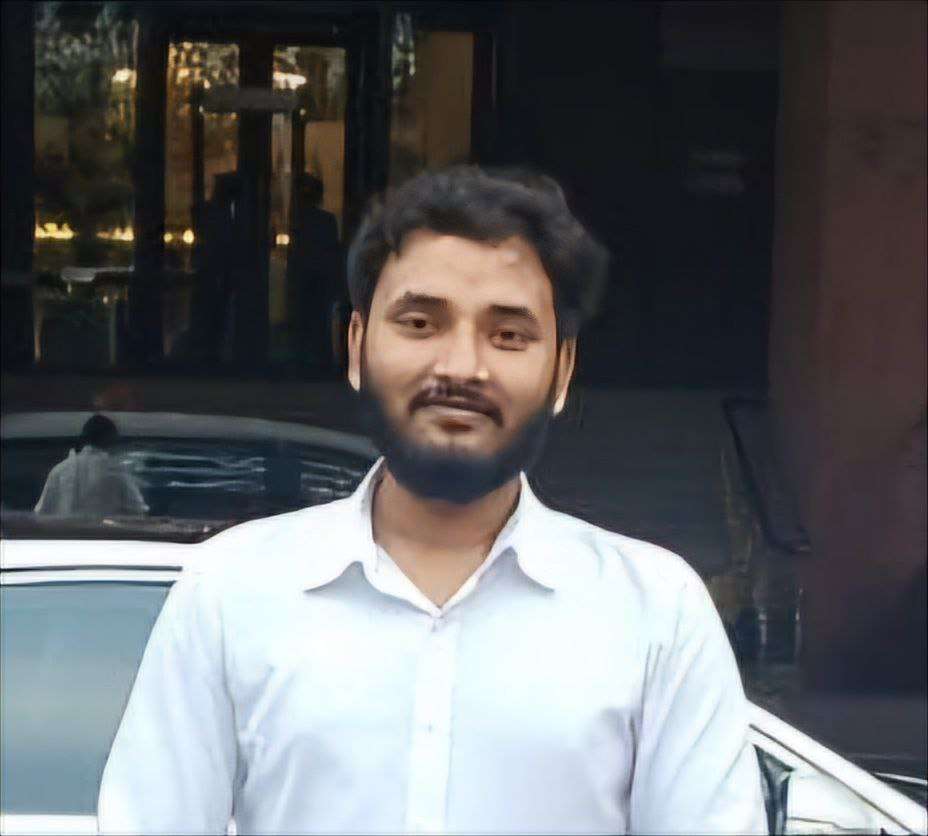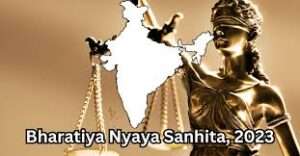
This article has been written by Sumit kumar a 4th year student at Law college Dehradun.

Abstract
The Bharatiya Nyaya Sanhita (BNS) is a major advancement in India’s criminal justice system, designed to update the legal system and tackle present-day issues more efficiently. It supplants the Indian Penal Code (IPC) and incorporates new features while revising current ones to align with societal changes and current crime trends. This focus on the BNS discusses key sections that demonstrate how this fresh legal code works towards enhancing justice and public safety in India. One of the key updates in the BNS is the introduction of new viewpoints on crimes committed against women and children. Additionally, community service has been included as a potential punishment, while the definitions of organized crime
and terrorism have been reworked. Sedition has been removed as a charge, with a greater emphasis placed on actions that jeopardize India’s unity and sovereignty. The BNS recognizes the changing landscape of crime by targeting group-based offenses, ultimately striving to enhance safety for all citizens.
Introduction
The Indian Parliament approved the Bharatiya Nyaya Sanhita (hereinafter known as BNS) in 2023 as a replacement for the current Indian Penal Code 1860. This new legislation received presidential approval on December 25, 2023. Once officially enacted this significant legal reform will be known as the Bharatiya Nyaya Sanhita, 2023.BNS will replace 163 years old law.
During British rule in 1860, the Indian Penal Code (IPC) was created based on the suggestions of the first Law Commission of India, set up in 1834 under the Charter Act of 1833 and headed by Thomas Babington Macaulay.
The Bharatiya Nyaya Sanhita (BNS) is designed to meet India’s evolving requirements in the modern era and to rectify certain flaws in the Indian Penal Code (IPC). While the BNS incorporates many of the same offenses as the IPC, there have been notable revisions. Notably, sedition is no longer considered a criminal offense under the BNS.
Spotlight of Bill
The Bharatiya Nyaya Sanhita (BNS) incorporates many of the same offenses as the IPC but introduces community service(section 4) as a punishment option. Sedition is no longer considered a crime under the BNS. Instead, there is a new offense for actions that threaten the sovereignty, unity, and integrity of India. Terrorism(section 113) is now recognized as a criminal offense under the BNS. It is defined as an act that aims to compromise the unity, integrity, and security of the nation, instill fear in the public, or disrupt public order. The BNS also includes organized crime as an offense, encompassing activities like kidnapping, extortion, and cybercrime carried out on behalf of a criminal organization. Additionally, minor forms of organized crime are now punishable offenses. Group murders targeting individuals based on specific identity traits, involving five or more perpetrators, are addressed under the BNS.
Prominent Aspect
- Of Offences Against the Human Body (CHAPTER VI of BNS/CHAPTER XVI of IPC)
The Indian Penal Code criminalizes actions like murder, assisting suicide, assault, and causing serious harm. The BNS law keeps these rules and includes additional offenses like organized crime, terrorism, and group-related murder or harm on specific criteria.
The Bharatiya Nyaya Sanhita categorizes terrorism as an action that seeks to:
(i) jeopardize the unity, coherence, and safety of the nation,
(ii) instill fear among the population, or
(iii) disrupt public peace. Those found guilty of engaging in or trying to commit acts of terrorism face severe penalties, such as:
(i) the death sentence or life imprisonment along with a Rs 10 lakh fine in cases where a person loses their life, or
(ii) imprisonment ranging from five years to life, and a fine of no less than five lakh rupees.
- Of offences Against Woman & Child (CHAPTER V of BNS/CHAPTER XVI of IPC)
The Indian Penal Code (IPC) has laws against serious crimes like rape, stalking, voyeurism, and offending the dignity of a woman. These provisions are kept in the new Bill on National Security (BNS). The BNS raises the age limit for a victim to be considered a minor in cases of gangrape, from 16 to 18 years. It also makes it a crime to have sexual intercourse with a woman through deception or false promises.
- Of Offences Against the State (CHAPTER VI of IPC/CHAPTER VII of BNS)
The BNS does not consider sedition as an offense anymore. Instead, it focuses on penalizing actions such as trying to incite secession, rebellion, or subversive activities, as well as promoting separatism or threatening India’s sovereignty and unity. These actions can involve verbal or written communication, electronic messages, or financial transactions.
- Organized crime involves serious crimes such as kidnapping, extortion, murder for hire, illegal land acquisition, financial frauds, and cybercrimes conducted by criminal groups. Engaging in or carrying out organized crime will result in severe punishment: either the death penalty or life imprisonment with a fine of Rs 10 lakh if someone is killed, or imprisonment ranging from five years to life, along with a fine of at least five lakh rupees.
- Murder by group (section 113) The Bill outlines a distinct punishment for murder carried out by a group of five or more individuals under specific circumstances. Those found guilty of this offense face a minimum of seven years in prison, with the possibility of life imprisonment, the death penalty, and a fine. The specified circumstances include factors such as race, caste or community, sex, place of birth, language, personal belief, or any other relevant consideration.
Causing death by negligence (section 106) if a registered medical practitioner commits a negligent act during a medical procedure, they may face imprisonment for up to two years and be fined. A “registered medical practitioner” refers to a doctor with a recognized medical qualification under the National Medical Commission Act, 2019 whose name is listed in the National or State Medical Register.
- Perpetrator fleeing or neglecting to notify authorities
Section 106(2) includes a new provision in sub-section (2) of BNS, which deals with cases where the culprit flees from the scene without informing a police officer or Magistrate. In these instances, the penalty is harsh, carrying a maximum sentence of ten years in prison along with a fine.
Due to the increasing number of hit and run incidents, a new provision has been introduced under section 106(2) of the BNS. Currently, hit and run cases resulting in death due to reckless and negligent driving are categorized under section 304A of the IPC, with a maximum penalty of two years imprisonment.
Section 106(2) was created to address hit and run accidents and enforce immediate accident reporting. The intention behind this provision is to help save the victim within the crucial ‘Golden Hour’, a term established in the Motor Vehicles Act of 1988 in 2019. Punishment under section 106(2) is not triggered simply because the driver flees the scene to avoid potential harm from bystanders. The offense is only committed if the driver not only flees the scene but also fails to report the incident to the police or magistrate shortly thereafter.
- The ambiguity in defining petty organized criminal activities
Bharatiya Nyaya Sanhita classifies small-scale organized crime as a criminal act. This includes activities like stealing cars, pickpocketing, selling exam papers, and any other form of crime carried out by a group. To be classified as such, these crimes must make citizens feel unsafe and be carried out by organized criminal groups or gangs (including mobile groups). The punishment for these crimes is imprisonment for one to seven years and a fine. The concept of making citizens feel insecure is vague, and terms like ‘gang’ and ‘mobile organized crime groups’ are not clearly defined by the BNS. The Standing Committee on Home Affairs (2023) has proposed revising the law to address these issues.
- The inclusion of offenses associated with organized crime and terrorism
Organised crime and acts of terrorism are not included in the Indian Penal Code (IPC). Acts of terrorism fall under the Unlawful Activities (Prevention) Act, 1967 (UAPA). Organised crime is addressed by state laws like the Maharashtra Control of Organised Crime Act, 1999 (MCOCA), and similar laws in Karnataka, Gujarat, Uttar Pradesh, Haryana, and Rajasthan. Offenses related to both organised crime and terrorism are now included in the BNS. This addition in the BNS helps in covering crimes that may occur in states without special laws. However, it also leads to overlap in states that already have such laws in place.
Conclusion
The Bharatiya Nyaya Sanhita (BNS) has made significant changes to India’s legal system, specifically in dealing with crimes related to national security, offenses against women and children, and organized crime. It has updated out-dated laws and added new measures to tackle emerging threats like terrorism and group violence. While the BNS has brought clarity to some legal areas, there are still difficulties in defining and handling minor organized crime. The importance of refining and clarifying specific terms and regulations is clear, as noted by suggestions from the Standing Committee on Home Affairs. The BNS is a positive development in updating India’s legal system to protect the country and its people, but on-going examination and improvement are needed to guarantee its efficiency and equity.
Reference
https://lddashboard.legislative.gov.in/sites/default/files/A1860-45.pdf
https://www.livelaw.in/pdf_upload/bharatiya-nyaya-sanhita-2023-final-513877.pdf





